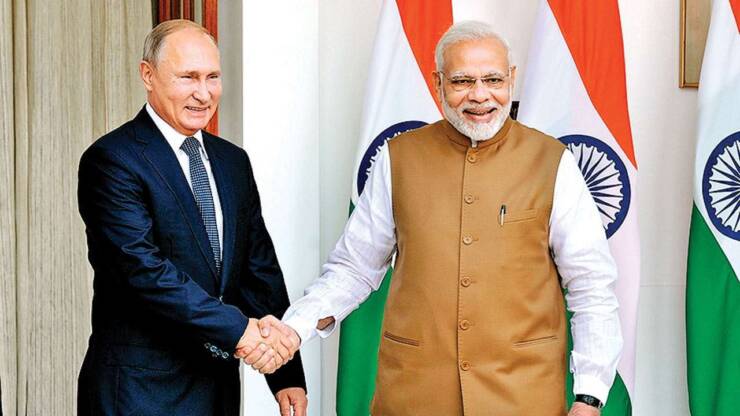
The term that better defines bilateral relationships and changing international geo-politics is “dynamism.” India as a matured nation has always displayed greater flexibility in dealing with every nation. The process has enhanced in the recent years. At present, India is passing through a severe crisis because of fresh outbreak of Covid-19 pandemic. In terms of both number of infected cases and mortality, India is making and breaking records. Considering the huge population of India, existing health sector comprising both public and private, challenges look really tough. If situation aggravates, thing may go beyond control. India really requires support from international community to deal with the situation.
New Delhi has always stood as per her capacity and delivered best during any humanitarian crisis so far in any part across the world. Considering these, decision of Moscow administration to send medical aids to India to deal with pandemic related issues is praiseworthy one. Russia sent 22 tons of humanitarian aid which includes 20 units of oxygen-producing equipment, 75 artificial lung ventilation devices, 150 medical monitors and 2, 00,000 packages of medicine. This move of Russia has been hailed by India at this medical emergency. Prime Minister Modi thanked the Putin administration for this. But during the telephonic talks between Prime Minister Modi and Russian President Putin, PM Modi proposed for 2+2 dialogue between the two nations. Thus, PM Modi took the opportunity of initiating bilateral talks with Russia comprising both foreign ministry and defence ministries. President Putin responded positively to India’s proposal, which has increased the probability of bilateral civil and strategic talks between the two nations in the coming days.
Russia has always been a trusted ally of India and the biggest supplier of defence equipments to India for nearly five decades. Moscow has been an advocator of India’s issues and concerns in the UN Security Council for decades. Moscow strongly stood with New Delhi during every crisis particularly in the Cold War era. India also reciprocated positively. However, India remained abstained from being a part either of the two blocks led by USA and the then USSR. India rather adopted an alternative policy; Non-alignment for her diplomatic independence in the world order that was evenly poised between two conflicting blocks. Nevertheless, it is true that India maintained closer relationships with USSR than any other nation in that era. Similarly, India reconstructed her bilateral relationship with Moscow after the fall of USSR. In fact, Russian interests in South East Asia remained secured because of the constructive role played by India during the tug of war between the capitalist and socialist blocks so far. That was the era when US dominance was spreading rapidly. Pakistan, Middle East and the Arab World subdued before the United States and accepted Washington’s hegemony.
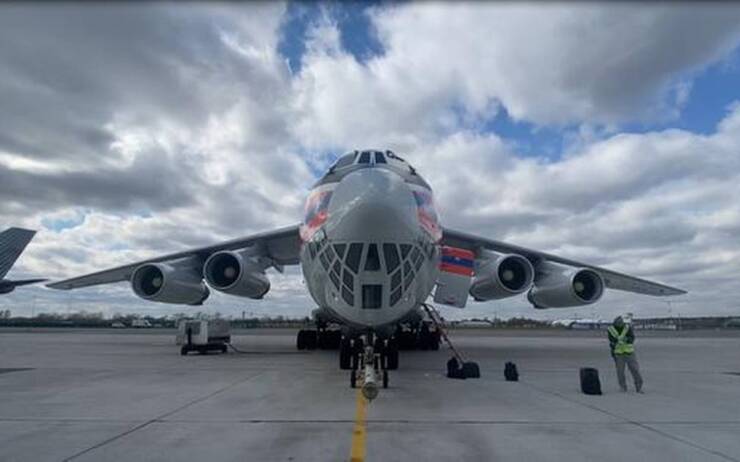
But today’s perspective is different as substantial changes have taken place in international geo-politics resulting realignments which have great strategic ramifications for both India and Russia. After the fall of USSR, Russia lost its status in international platform resulting US monopoly in global affairs. End of Cold War era and fall of USSR affected the balance of power almost everywhere. Washington’s stubborn stand and adamant approach enhanced volatility in western Asia and the Middle East. India found situation changing in the adjourning region particularly in Pakistan and around the periphery against the larger strategic and security interests of New Delhi. Similarly, China evolved as a regional power to occupy the vacuum and Beijing made all efforts to become the global exponent of socialism. In fact, since the end of World War II and fall of Japanese imperialism, China began to evolve strongly. Despite, ideological similarities, there has always been if not conflict but competition between USSR and China regarding leading the socialist block. So also, incidents like Washington’s misadventures in Afghanistan, Iraq, Syria and others, Chinese expansionist strategy, Beijing occupying larger strategic hold in Pakistan, Myanmar, North Korea, Nepal and others invited peril and increased volatility in the region. Apart from all these, religious fundamentalism got organized under the direct patronization of Pakistan and logistic support of China. All these put together created more challenges before India and rest of the world. India continuously raised these issues in global platforms. But the major parleys of global politics hardly responded. Escalation from Pakistan, Nepal, Myanmar, Sri Lanka, Maladies and others put larger threat against India in both land border and the sea.
This was the era, Pakistan took drastic steps and India had to face the incident like Kargil conflict in 1999 that lasted from May to July, 1999 the Line of Control (LoC). During the war, the Indian Army evicted Pakistani intruders and succeeded in recapturing the Tiger Hill and other posts as a part of Operation Vijay. On 24th December 1999, Islamic terror outfit Harkat-ul-Mujahideen hijacked Indian Airlines IC 814 carrying 178 passengers and 11 crewmembers on its way from Kathmandu to Delhi with the active support of Pakistan Army and ISI. The hijackers took it to Kandahar on the gunpoint. The deadlock continued for an entire week and ended on December 31, 1999 with the release of three militants by New Delhi; Masood Azhar of Jaish-e-Mohammed, Omar Sheikh of Harkat-ul-Ansar and Mushtaq Ahmed Zargar of Al-Umar Mujahideen. On December 13, 2001, Pakistan based terror outfits Jaish-e-Mohammad (JeM) and Lashkar-e-Taiba (LeT) trained five terrorists attacked Indian Parliament and killed five Delhi Police personnel, a woman of Central Reserve Police Force (CRPF), two Parliament staff and a gardener. On November 26, 2008 often referred as 26/11, ten Lashkar–e-Taiba terrorists carried out a series of shooting and bombing in Mumbai killing 164 people and injuring over 300. Terror acts against India have been continuing. Attacks in Pathankot, Uri and others prove the magnitude of insurgency against India. So also, there are continuous Chinese aggressions and escalation across the Line of Actual Control (LAC). Chinese provocation to the immediate neighbours of India has increased the threat perceptions for New Delhi.
There are series of such incidents that India had to face since 1990. All these compelled India to make certain policy changes to empower her security mechanism. Similarly, New Delhi took fresh initiatives to make heed the international community gravity of the situation and proved that perceiving subversive activities as acts executed by so-called non-State actors having limited strength and logistics is utterly wrong. In fact, the so-called non-State actors got organized under the direct patronization of the countries like Pakistan, Afghanistan, Arab nations and China. India also raised the issues related to Afghanistan and advocated global initiatives to make Afghanistan a part of mainstream global politics. But international community did not take it seriously and kept on underestimating the strength of the organizations like Al-Qaeda, Haqqani network and others. Actually, Afghanistan has been on the boil for decades. Even before USSR engaged into direct military conflict with Afghan rebels, intensity of arms-conflict ravaged the nation. During SAUR revolution, Afghan-rebels got military training, huge monetary support, logistics and arms from US, UK, China, the Arab world and of course Pakistan. In fact, all these things happened through the ISI and Pakistani army. When USSR returned from Afghanistan, up to then Afghan rebels became powerful with both military logistics and money. India was the only country to raise the concerning developments taking place in both Afghanistan and Pakistan in the name of jihad. But global community did not take it seriously.
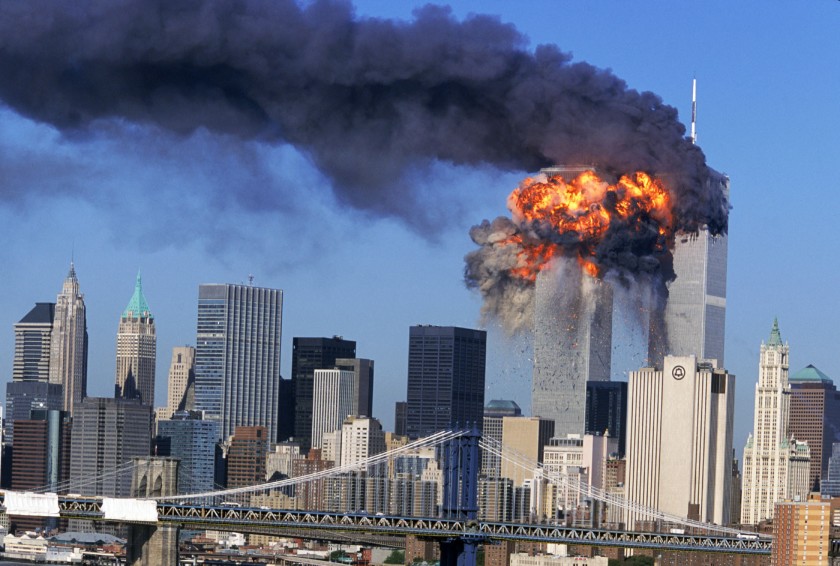
On September 11, 2001, 19 militants associated with the Islamic extremist group al- Qaeda hijacked four airplanes, carried out suicide attacks against United States, and targeted the twin towers of the World Trade Center in New York City and the Pentagon. Two of the planes crashed into the Twin Towers of the World Trade Center complex in Manhattan. The third plane crashed into the Pentagon, the building that houses the headquarters of the US Department of Defense, in Virginia. The fourth plane crashed into a field in Pennsylvania. Almost 3,000 people were killed during the 9/11 terrorist attacks. After 9/11 US began to give serious pondering to the concerning developments happening in and around South East Asia and more particularly Taliban regime of Afghanistan. But the steps taken by the United States in the name of war against terror were utterly wrong both from strategic and security point of views. Similarly, the follow up actions initiated by the United States after forceful regime changes in Afghanistan and Iraq were strategic blunders. After all, US had to withdraw keeping the countries insecure resulting volatility on the rise, which is continuing till date.
I admit that no one is unaware of all these. Nevertheless, this prelude is necessary to prove the point that certain factors broadened the gap between India and Russia. Situation demanded India to think about diplomatic-realignment, strategic push and defence modernization. That was a tough time for India and New Delhi had to take some harsh and out-of-box decisions to safeguard her strategic and security interests. Significantly, the decade 1990s was also volatile era in Russia as the country was in virtual civil war, which ultimately broke down USSR. USSR officially collapsed on December 26, 1991. After the fall of USSR, the region witnessed multi-porn crisis like Russia-Chechnya conflict in 1994, civil war in Tajikistan from 1992 to 1997, South Ossetia and Abkhazia declaring independence and Russian intervention, Uzbekistan allowing American troops to use the territory during the Afghanistan war against Russia’s interests and so on. Economy of Russia fell down and its GDP declined to 50%. This transitional period initiated political realignment, enhanced the process of fresh security tie-ups and formed new equations. Here, the point that becomes significant is that changes in regional security affairs, increasing hostility, geo-politics of the region and insurgency put together ultimately brought new challenges before India and beleaguered Russia. Naturally, India had to consider all options to strengthen her security mechanism against insurgency, Pakistani military provocation and occasional Chinese escalations made the situation more complicated for India. Fresh alignment to boost up security mechanism against all the odds was the need of the hour for India and New Delhi acted accordingly to safeguard her national interests.
What I have stated so far are the causes that created gap between the two nations during the last 20 years. This is true that India and Russia have continued summit level talks so far and this is happening on regular basis as per schedule. But beyond that there are certain aspects that bring the two nations closer keeping aside what happened so far. In this context, Prime Minister Modi’s proposal of initiating 2+2 dialogue between the two nations and President Putin accepting this bear great significance. Today India-Russia relationships should address the points related to trust deficit so that bilateral relationship can evolve on a solid platform. But why is this trust deficit? Well, there are certain policy decisions of Russia that India feels against her national interests. Russians have certain complains against India as well. During the last few years, Russia seemed making deeper co-operations with Pakistan and China. So also, Russians have objected India’s role in case of Afghan peace process. These are really concerning developments for India. On the other hand, Moscow is not happy regarding India’s relationships with the West more precisely with the US. Russians also complain about the formation of QUAD and regard it as Asian NATO led by Washington.
These issues having both myths and realities need to be clarified through negotiations by New Delhi and Moscow to sort out the existing trust deficit. India’s points are very clear; changed geo-political, strategic and security interests of India and the threats from insurgents and non-State actors compelling New Delhi to shift her attention towards West. This is true that once USSR was the major supplier of arms, arsenals and defence technology to India. But India found an urgent need to boost up her security mechanism in the 1990s and 2000 onwards. Co-incidentally, at that time, Russia had been busy in her domestic affairs and capability of Russia of exporting arms to India declined with the fall of USSR. Naturally, India tried alternative at that juncture which ultimately became the base of India’s relationships with the US and other nations in the new global era. So also, India’s engagement with the US and other nations never made any effort to sabotage Russian interests anyway. That means, India as a sovereign and responsible nation does not make diplomatic relationship for supremacy and influence the affairs of any nation.
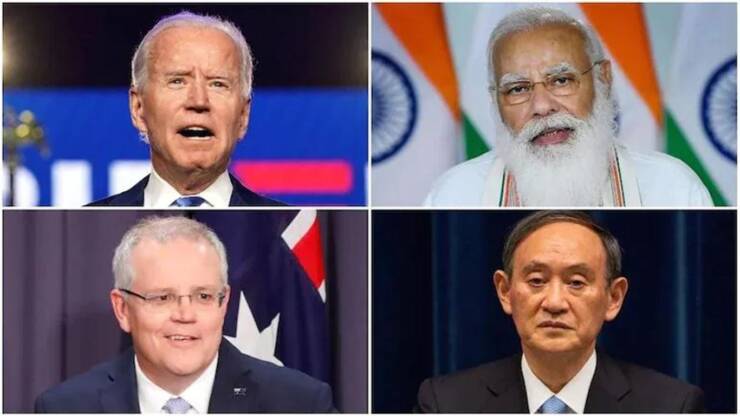
India respects diplomatic tie-ups with all the nations; be bilateral, trilateral or multilateral, forum, summit-level or others. Policy initiation of India is and has been for her domestic security, stability of the region and larger interests of international community. But there are challenges from nations like Pakistan and China that compel India to evolve strategically stronger. Naturally, with the passing time, India’s needs and aspirations also grew. Evidently, India of 1947 and of 2021 looks different. Naturally, today’s India aims to evolve as a power both economically and militarily to safeguard her interests and harness the dream to become a vibrant nation. Do these devoid of logic? Moscow must give serious pondering to this. So also, as far as QUAD is concerned, this is neither axis nor nexus. QUAD is a platform of some democratic nations and its purpose is to keep larger part of Asia-Pacific peaceful. It is the fallout of China’s expansionist strategy constantly challenging the liberal nations. India as an important parley of regional politics is making efforts through QUAD to restrict China and avoid volatility. QUAD is not an anti-Russia block. Rather, QUAD has relevance for today’s Russia as well. But Russia will not agree to be a part of QUAD and sharing common platform with the United States. Relations between Russia and US are becoming bad to worse. This has further declined after US imposing sanctions on Russia recently.
Now the related question here is whether India should take the role of a mediator between US and Russia or not. Of course not. India’s stand always has been against such role; third party intervention in bilateral matters. But the point is: both USA and Russia came out of Cold-War mindset long back. There are several occasions both during the World War and after when US and Russia seemed working together on many fronts. What India can do is to engage with United States and ask President Biden about the cause of his hypes against Russia, logic behind such approach and relevance of the same in the present circumstance. Yes, India has attained that status and above all India cannot let QAUD derailing from the track because of irresponsible approach of President Biden. Respecting foreign policy prerogatives of both US and Russia, India can try to focus the areas of mutual interests of both the nations. But why will US and Russia agree to that? Well, they may or may not. But if policy of either of the nation creates hindrances to take forward India’s bilateral relations and that of the QUAD initiatives, India has legitimate right to intervene. After all, if US-Russia rivalry sabotages regional interests and increases volatility in the region and Asia-Pacific, India cannot remain mere onlooker. One may have different logic.
Similarly, Russia should also make sincere efforts to address those issues that have created trust-deficit in case of India. Russians must clarify their stand on certain issues and there are obviously some embarrassing interrogatives. Is Russia unaware about roles played by Pakistan and China against larger security interests of India? Certainly not, Russia is well aware about this. Then what is the exact form of relationship between Russia-Pakistan and Russia-China? What logic does Russia have behind arms supply to Pakistan that ultimately boosts terror network nurtured by the ISI and Pakistan army? What is Russia’s stand on the issue of terrorism against India? Does Russia ratify China’s expansionist strategy? What is Russia’s take on Chinese escalation across the LAC? How does Russia perceive terror network establishing bases in other SAARC nations after Pakistan? What is Russia’s view regarding China Pakistan Economic Corridor (CPEC) illegally built in the region despite constant objection from India considering New Delhi’s security interests? Relevant one is: does Russia support China’s irresponsible and inhuman approach of spreading corona virus as biological weapon and compelling the world to face the catastrophe? How does Russia see China’s policy in North Korea and the South China Sea?
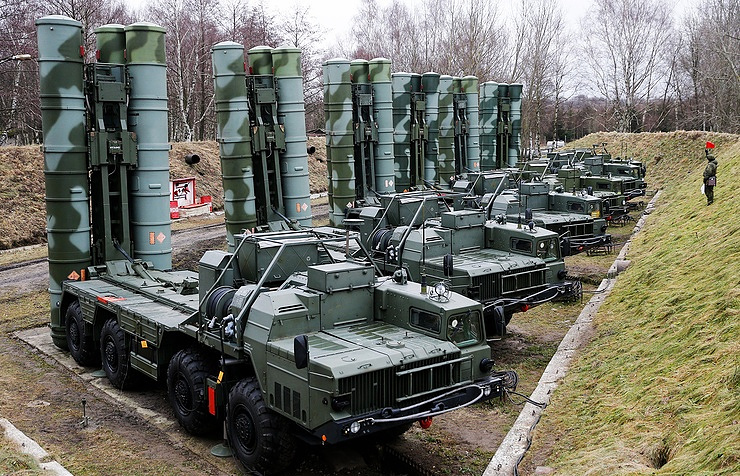
But here the relevant question that will arise: why will Russia reply to all these? Well, whether Russia will reply or not that depends upon Moscow administration. But diplomacy is all about bargaining. Similarly, there should be flexibility in approach. After all, negotiation means playing the ball both with hard and soft hand. I am not telling that India should bring all these questions on the table in a straightforward way but in tactical manner. Similarly, these questions are counter-argument of India if Russians take the stand that there is trust deficit in case of India for New Delhi’s relationship with the United States and the West.
However, the most important part is identifying the areas of co-operation. There has been constant co-operation between India and Russia in the sectors like defence, space, nuclear energy and others. Defence-cooperation has enhanced between India and Russia during the last few years. There is agreement between India and Russia to make defence equipments and helicopters. In January 2019, India and Russia signed an Intergovernmental Agreement (IGA) to co-produce AK-203 rifles under a joint venture; Indo-Russia Rifles Private Limited (IRRPL). Similarly, there is possibility of Russia delivering India the first regimental set of S-400 Triumf ‘SA-21 Growler’ air defence systems later this year. India is building nuclear power plants with Russia’s collaboration in Kudankulam on the seacoast in Tamil Nadu’s Tirunelveli district. However, important one is certainly BRAHMOS supersonic cruise missile developed by India’s Defence Research and Development Organization (DRDO) and Russia. Now, there is larger plan to export the missile to Philippines and other nations like Indonesia, Thailand, Malaysia, Singapore and Vietnam. All these indicate both potentiality and probability of larger strategic partnership between India and Russia. Here question will arise regarding China. Supply of BrahMos supersonic cruise missile to Philippines shows rather daring approach of Russia in this context. After all, Philippines is a country under Chinese dominance. So also, the plan of selling BRAHMOS to the ASEAN countries, nations of East Asia and Far East Asia shows that Russia if not confront but ready to compete China in defence trade which contributes a lot to Russian GDP. Significantly, Russia cannot do so without the help of India for both geographical location and existing agreement with India in case of joint defence production. This proves that India has already become partner in Russian defence trade and that should extend further. The sea route from Chennai to Vladivostok is a major development in this context. The sea route covers coast of Tamil Nadu with the eastern coastal region of Russia covering distance of approximately 5,600 nautical miles in the Pacific Ocean.
However, India’s strategic interests can better serve if China can be kept out of the purview. Naturally, this is tough one. Russia maintains close relationship with China at this point of time. But there are certain areas where Russian interests will never allow China to dominate. Similarly, geo-strategic location of China does not give Beijing that leverage; vast area of Central Asia where Russia has always been a strong power. Even after the fall of USSR, Russia has maintained that status. No doubt, China is trying to reach there as well. Central Asia bears great significance for the United States. That means if Russia on the one hand will always try to restrict US, on the other hand Moscow will object Beijing’s presence there for its economic and trade interests. Both United States and China are competitors for Russia in this region and this can be the basis of India-Russia larger strategic partnerships. In fact, Russia-China trade conflict has already come out in Iran regarding car market. Today China has almost replaced Russia in case car trade in Iran. Some developments have already taken place to make better connectivity between India and Russia. In 2000, India, Russia and Iran agreed on the 7200 km long International North South Transport Corridor with rail, road and sea transport. This corridor will connect the Indian Ocean and the Persian Gulf to the Caspian Sea via Iran and then reach northern Europe via Russia.
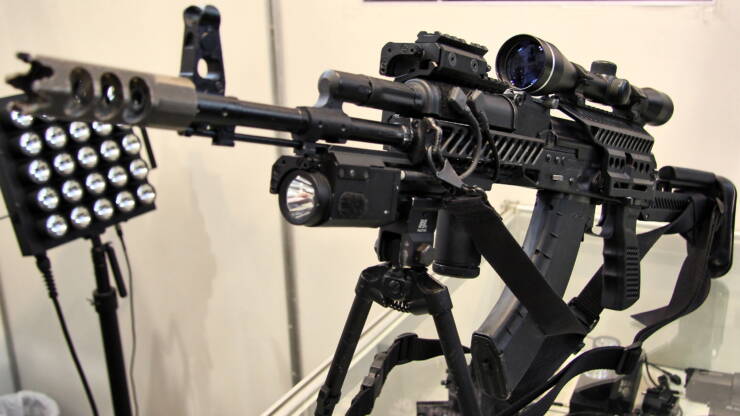
The commencement of this corridor will promote trade for Russia, Iran, Central Asia, India and Europe. This will save time and cost in the movement of goods in this entire region as well. The rail connectivity has already been established up to Azerbaijan. The Iranian part of the project was delayed due to decade-long UN sanctions that were recently lifted. Recent reports suggest work is progressing rapidly to bridge the logistics gaps. Here, India-Iran engagement becomes significant. India wants Chabahar port should be connected under this project. So also, Bandar Abbas port of Iran is also very important. Distance between Port of Mumbai and Port of Chabahar is about 936 nautical miles. On the other hand, the distance between Port of Mumbai and Bandar Abbas Port is approximately 1265 nautical miles. Reaching there opens land route for India up to Russia and Europe. No doubt, some concerning developments have taken place recently.
As per media reports, Iran has decided to drop India from the project of construction of a rail line from Chabahar port to Zahedan along the Afghan-Iran border and decided to proceed with the project without any Indian aid. Iran is alleging the lack of initiatives and delay in investment as per agreement on India’s part. This demands India’s immediate engagement with Iran and ensuring her commitment through immediate investment for the project. China is playing the game of spoiler against India and wants wider presence in the region through Afghanistan and Iran. Russia needs to be more pro-active to ensure India’s presence there. But will China allow such things to happen? After all, China is competitor of Russia not only in Iran but also in Central Asia and the primary reason behind this are Russian trade and strategic priorities. But India has also shown diplomatic maturity in this context with the proposal of connecting Chabahar port of Iran in the International North South Transport Corridor. India commemorated Chabahar Day on March 4 last on the sidelines of the Second edition of International Maritime Summit-2021. In the virtual event ministries from Afghanistan, Armenia, Iran, Kazakhstan, Russia, and Uzbekistan participated. This is no doubt a significant development.
So also, another important sector of strategic partnership between India and Russia is certainly to improve counter-terrorism mechanism. Moscow perceives terrorism as a major source of global instability that affects trade, economy and development. Significantly, Russia endorses India’s stand and concerns regarding terrorism. Russia admits that terrorism is a matter of great concern for territorial integrity and sovereignty of India. Earlier Deputy Chief of the Russian Security Council, Oleg Chernov of Putin administration gave a strong message to Pakistan regarding this. Russia has also expressed willingness to enter into military, strategic and technical cooperation with India to fight against the menace of insurgency. That means, India and Russia have common concerns and approaches to deal with terrorism and there are both potentialities and probabilities for extended strategic tie-ups between the two nations. Russians should give serious pondering about the matter that along with Pakistan, China is also supporting terror network. Thus, China and Pakistan can have no role in Afghan peace process. Logical thought of Moscow will also reveal that in certain sectors Russia-US co-operation is necessary no matter both are conflicting in other parts. Point is: in case of bilateral relations, US and Russia may have certain vexed issues and they are conflicting on those in different points. But significantly, both Washington and Moscow have common concerns, threats and ways of dealing with terrorism. This demands both Biden and Putin administration to be flexible. US should think whether its present approach regarding Russia is logical one or not. Similarly, Russia should ponder about its approach against US. Moscow needs to review its relationship with Pakistan and China. This is where only India can play a significant role in convincing both United States and Russia coming together at least on certain issues; terrorism and global security. This better serves India’s strategic agenda. New Delhi can take a tactical approach to bring US and Russia closer to address certain issues of mutual concerns. If India succeeds in formulating the agenda of issue-based co-operation between United States and Russia in the security related issues of South East Asia, which will really be a great achievement for New Delhi. Yes, there are lots of ifs and buts here. But diplomacy is all about finding answers or alternatives of ifs and buts. After all, US-India co-operations against terrorism has great significance for larger strategic interests of India and the region. India is maintaining good relationships with both US and Russia. This can be put into use for India’s strategic and security interests and harnessing the long-cherished dream to be a regional and global power. I admit someone rejecting this logic and even making fun of such idea. But if diplomacy means searching possibilities, the argument has certain logic. Nevertheless, my point is: New Delhi may experiment this. Respecting all counter argument, I state, history tells nations becoming power with such daring efforts and this is perhaps an unalterable reality. Concept of friend and foe is non-existent in international politics. So, things often turn around unexpectedly. But here the point is enhancing strategic tie-ups between India and Russia. Yes, this has immense potentialities and probabilities. How will New Delhi and Moscow utilize these? It remains to be seen in the days ahead.
The author is a Guwahati-based strategic affairs expert and writer of ‘India’s Fragile Foreign Policy towards Neighbouring Nations’ & ‘Modi’s Rule and India’s Unbound Opportunities: Narrative of the Substantives and Beyond’








